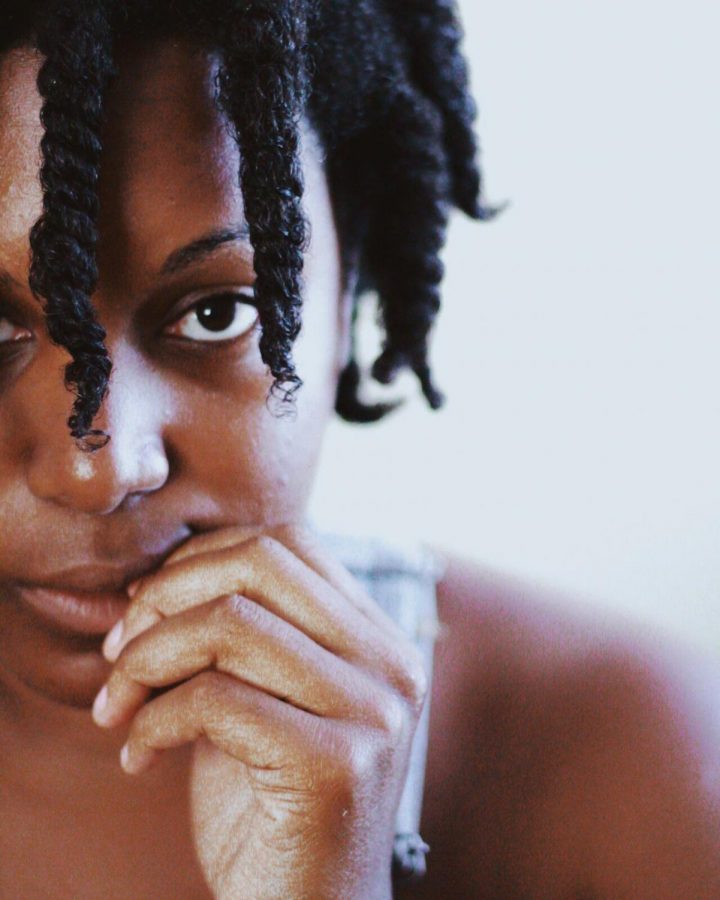Natural hair has always been highly politicized and stigmatized. Dating to times of slavery, kinky curly hair was looked down upon by white people because straight hair was associated with superiority.
Kinky curly hair was seen as an unkempt and lower class.
Fast forward to now, that racist narrative still remains except words such as “unconventional” and “unprofessional” are used. A recent example of this is DeAndre Arnold.
Arnold, a Black student at Barbers Hill High School, has faced negative consequences such as in-school suspension and possibly not walking in graduation for refusing to cut his dreadlocks.
“Male students’ hair will not extend, at any time, below the eyebrows, or below the ear lobes,” according to the school policy. “Male students’ hair must not extend below the top of a t-shirt collar or be gathered or worn in a style that would allow the hair to extend below the top of a t-shirt collar, below the eyebrows, or below the ear lobes when let down.”
Arnold does not want to cut his hair because it is part of his identity. He comes from a Trinidadian heritage and his hair symbolizes that.
Arnold has tried tying his hair up to fulfill the requirements but even that isn’t allowed because male students are not allowed to adorn their hair with anything.
Many people on social media recalled similar stories of natural hair being against the policy at sporting events, professional settings, etc.
Arnold’s story is very similar to that of Andrew Johnson who is also from Texas.
A video surfaced of Johnson having his hair cut at his wrestling match. Alan Maloney, the referee, deemed Johnson’s hair as unacceptable. Maloney said that Johnson’s hair was “not in its natural state” and gave Johnson the choice to either forfeit or cut his hair. He stood at the sideline as the trainer roughly cut away at his dreads.
A few months before the Johnson incident, another case of this happening occurred in Louisiana.
Eleven-year-old Faith Kennedy was sent home because her box braids were against Christ the King Parish School’s school policy.
The policy states that students’ hair, “must be conventional….must not interfere with the learning process or draw undue attention to the student…”
If those standards are not met students are sent home or suspended until their hair is “deemed appropriate by the principal,” according to the handbook.
That is where the root of the problem lies. Natural hair has never been considered “conventional” or “appropriate”. Black bodies and Black hair have always been politicized.
Often times, natural hair is associated with “radical” Black movements such as the Black Panther Party.
The Black Panther Party fought the oppression of Black people. One of the ways they fought oppression was to reject white supremacist ideology.
Unfortunately, such ideologies have been turned into policies and have been disguised in microaggressions. That is very telling of why those racist standards exist.
The Black Panther Party and even the current “woke” movement is encouraging Black people to reject eurocentric standards and accept themselves. That within itself is considered “extreme”.
Such “radical” movements as simple as embracing your own standards of beauty can warrant unfortunate consequences.
In professional settings, employers are allowed to uphold those biases which can result in employee termination.
“I was told, my natural hair is unprofessional and the equivalent to him throwing on a baseball cap to go to the grocery store,” according to Brittany Noble Jones, a former journalist at WJTV in an interview with “Medium”.
In the past few months, California and New York have banned discrimination based on natural hairstyles.
The New York Human Rights Law not only protects the wearer of both natural hair and protective styles.
Only two out of the 50 states outrightly protect Black and brown people from discrimination based on the hair that grows out of their head naturally. That is a problem. Black people should not fear unemployment because of their hair and culture.
Another place that Black people face discrimination is in pop culture.
There are many stereotypes surrounding different styles including a false notion that natural hair is dirty and/or unkempt.
In 2015, actress, singer and dancer Zendaya attended the Oscars with her hair in faux locs.
Giuliana Rancic, co-anchor of E!, made a racist comment saying that the dreadlocks made Zendaya look like she, “smells like patchouli oil. Or, weed.”
Zendaya responded on Instagram saying, “There is a fine line between funny and disrespectful…To say that an 18-year-old young woman with locs must smell of patchouli oil or ‘weed’ is not only a large stereotype but outrageously offensive.”
Some came to Rancic’s defense saying that it’s just hair. Since this incident, and even before then, non-Black artists have appropriated dreadlocks and other natural hairstyles.
Artists such as Zhavia and Ari Difranco have gained followers for not only their music but their bohemian/hip look. It’s frustrating and infuriating that Blackness has always been hard to digest in non-Black spaces.
Blackness and Black culture have never been acceptable on Black bodies. It has always been too “radical,” too “aggressive,” and “takes up too much space.” Black culture has been easier to swallow on non-Black bodies.
It has never been just about hair. Black people shouldn’t have to fear the response of their employers and society when they wear their natural hair. They shouldn’t have to navigate their way through obstacles of acceptability and appropriateness.
Blackness has never “sat right” in spaces of euro centricity. Black culture has always been loved but never Black people.
“You should care that somebody is trying to take your rhythm but not know your blues,” Amanda Seales said in an Instagram post.







